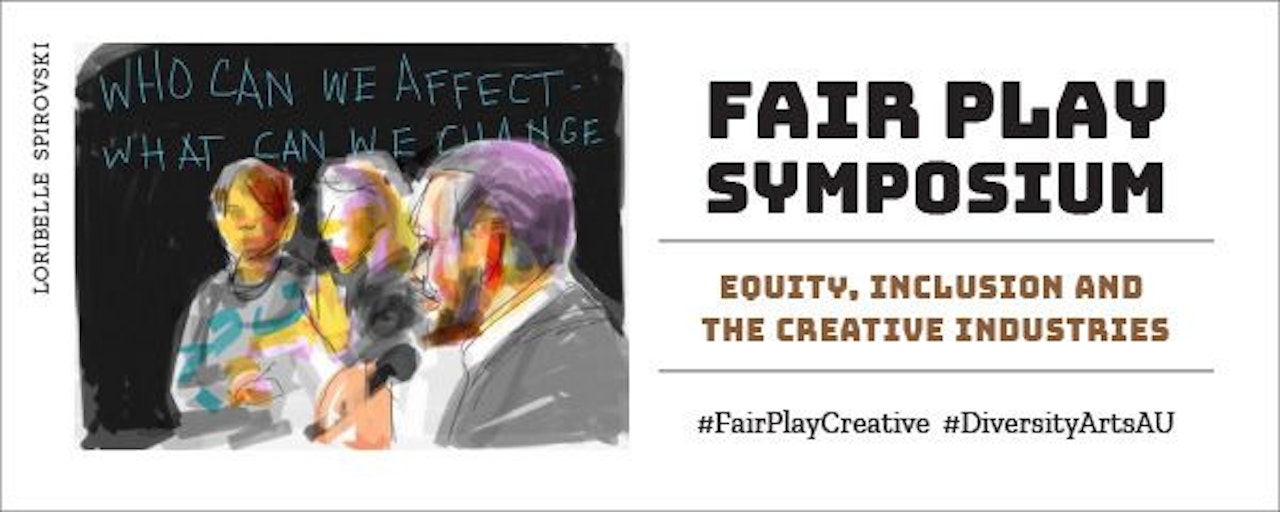Day 2 - Wednesday 27th, 2:45pm - 3:45pm AEDT
Eugenia Flynn (Participating chair), writer, arts worker, community organiser
Dominic Golding, Disability and Community Arts officer of Rise Refugee
Peter Waples-Crowe, Ngarigo queer visual and performing artist
Azizeh Astaneh, artist and President of Melbourne Artists for Asylum Seekers
Jax Jacki Brown, activist and Publishability Project Officer, Writers Victoria
Australian arts organisations and funding bodies typically treat First Nations, CALD and People with Disabilities as mutually exclusive groups defined by under-representation or disadvantage. What's left out of that picture? How might we think about these issues differently? And what would that look like for arts organisations in practical terms?
Panel (45 min) followed by Q&A (15 min) facilitated by chair.
Media Contributions
Key Points
-
discEugenia Flynn: Intersectionality is a word that gets bandied around. Without looking at compounding marginalisations like race, gender, sexuality, class, disability we can't effectively organised against oppression.
-
discJax Jacki Brown: We still don't have a vibrant approach to intersectionality.
-
discPeter Waples-Crowe: The lived experience informs where I make and show my work.
-
discDominic Golding: External society determines who you are. They define you by your 'otherness'.
-
discJax Jacki Brown: I am sick of saying thank you for the crumbs that fall off the table. We should be at the fucking table!
-
discDominic Golding: Where are the obligations on arts organisations to uphold human rights?
-
discAzizeh Astaneh: Refugees and asylum seeks are widely ignored.
-
discPeter Waples-Crowe: My Aboriginality is often erased when I am working in a Queer context.
-
discPeter Waples-Crowe: Sometimes I feel like a second-class native because of my Queerness.
-
discAzizeh Astaneh: Diversity shouldn't be like a shopping list, 'We have a lot of 'those', do you have any other varieties?'
-
discDominic Golding: Mainstream organisations need to look at their own selves in order to be able to create space for diverse stories.
We would like to acknowledge that we are meeting today on the traditional lands of the Kulin Nation, to pay our respects to their Elders, past, present, and emerging, and to honour their long lineage of creative practice.
